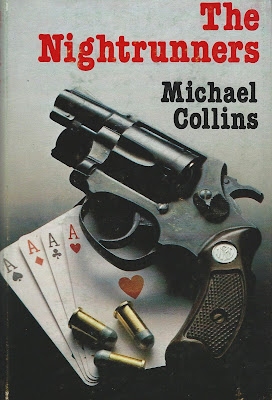Jane Austen's novel, Emma, is a book about a rich, beautiful, and somewhat spoiled young woman who spends most of her time trying to manipulate the lives of others. Yet she does not do this maliciously or uncaringly. Everything she does is to help others, at least from her point of view. Emma, the protagonist, can be very annoying, yet I liked and sympathized with her throughout, while at the same time wanting her to wake up and grow up.
This is my third Jane Austen book in three months, and I am enjoying them all very much, more than I expected to. Some books I like more after I have finished them and considered them for a few days, and that is the case with Emma.
In general, what I like about Austen's novels is that she gives us a picture of life (at least from her point of view) at the time the books were written, and also that she is pointing out the foibles of society at that time. (Not that society at this time is any piece of cake to deal with.)
Emma's story is told primarily from her point of view, though not in first person.
“She was the youngest of the two daughters of a most affectionate, indulgent father; and had, in consequence of her sister's marriage, been mistress of his house from a very early period. Her mother had died too long ago for her to have more than an indistinct remembrance of her caresses; and her place had been supplied by an excellent woman as governess, who had fallen little short of a mother in affection.”
Miss Taylor is the governess who had been Emma's friend, almost as close as a sister, until she left the household to marry Mr. Weston. So as the book begins she is Mrs. Weston, and the loss of her constant companionship is what leads Emma to find a new friend who becomes her protege, Harriet Smith. Harriet is clearly not at Emma's social level, and not as clever, but is well-mannered and genial. Emma determines that she will find a husband for Harriet that meets Emma's criteria as worthy.
In addition to Emma, the Westons, and Harriet, the important characters in this novel are
Mr. Woodhouse
"He was a nervous man, easily depressed; fond of everybody that he was used to, and hating to part with them; hating change of every kind. Matrimony, as the agent of change, was always disagreeable; and he was by no means yet reconciled to his own daughter's marrying..."
I love the character of Mr. Woodhouse, Emma's father. He wants everything to remain the same forever. He sees the marriages of his eldest daughter and Emma's governess as misfortunes because they left him to pursue their own lives and needs and he cannot see them everyday, any time he wants. Many readers see Emma as self-centered and narcissistic, but Mr. Woodhouse more truly fits that description. He is focused on his own needs, and wants the universe to continue to revolve around him and cater to his needs. Emma is a loving daughter, treats him respectfully, and tries to get him out and about at times.
Mr. Knightley, a close family friend and the brother of the husband of Emma's older sister, is another important character. He is seventeen years older than Emma, and he is the only person who points out her flaws to her when she makes mistakes. Emma and Mr. Knightly are valued friends but often at odds with each other.
Frank Churchill is the son of Mr. Weston by a previous wife, who was raised by his wealthy aunt and uncle, the Churchills. It is obvious that the Weston's would like Frank Churchill and Emma to get together (to the reader, but not to Emma, who is not interested in marriage and happy to live with her father).
Jane Fairfax comes to live with her aunt and grandmother, Miss Bates and Mrs. Bates, her only living relatives. Emma and Jane are about the same age, and although Jane is not socially Emma's equal, Emma feels threatened by her talents (singing and playing the piano).
What I like about this novel specifically is the portrayal of Emma. She may be irritating, at times infuriating, but she sees herself as independent and is not focused on her own marriage plans, which is refreshing. I found it funny that Emma is extremely aware of distinctions between the classes and whether or not she should mix with certain groups of people, but she ignores all of this when she schemes to make a match between Harriet and various men, all not of Harriet's class.
As the book progresses we see Emma's gradual (very gradual) realization that she should not be so judgmental and should stop messing with other people's lives. She learns to be more careful and considerate in her behavior and opens up to a relationship she did not realize was important to her.
My biggest complaint about this book (and so far about Austen's novels in general) is the length. She spends so much time on details and building up portraits of people and situations and, at times, loses the reader along the way. This isn't enough to deter me from reading Austen, however. The pros far outweigh the cons.
I read Emma this month as a part of the Jane Austen Read All A-Long at James Reads Books. The readalong started with Sense and Sensibility in July and continues through Persuasion in December. I read Pride and Prejudice in August and Mansfield Park in September. I will be reading Northanger Abbey in November and Persuasion in December.
-----------------------------
Publisher: Book of the Month Club, 1996 (orig. pub. 1816)
Length: 437 pages, including about 35 full page illustrations
Format: Trade paperback
Setting: UK
Genre: Literary fiction
Source: I purchased my copy.























